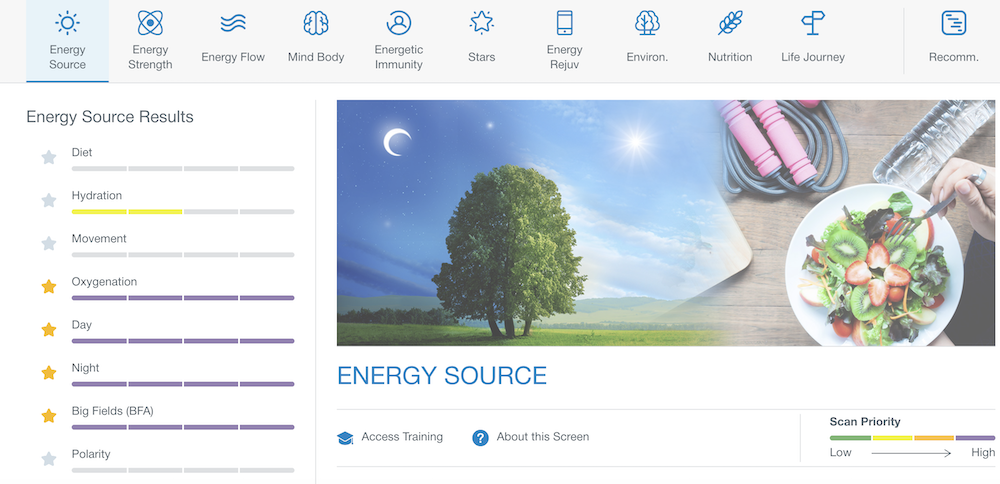Wish you had more energy to get through the day?

Ever feel like you’re dragging through your day, no matter how much sleep you get or how many cups of coffee you drink? If so, you might be experiencing low cellular energy. It’s not your fault that your cells are producing the energy that you need and there are many different reasons why this can be happening. Here are some of the common causes of low cellular energy.
Common Causes for Chronic Low Energy
1. Poor Nutrition & Nutrient Deficiencies
Think of your body as a car. Just as a car needs high-quality fuel to run smoothly, your cells need proper nutrients to function well. If you’re eating a lot of processed foods, sugars, or unhealthy fats, your cells aren’t getting the nutrients they need to produce energy efficiently. A diet lacking in essential vitamins and minerals can also leave you feeling tired and drained.
Certain nutrients are crucial for energy production, and a deficiency in these can lead to feelings of fatigue. For example, iron is important for carrying oxygen to your cells, and a lack of iron can result in anemia and low energy. Similarly, deficiencies in B vitamins, magnesium, potassium, or vitamin D can also hugely impact your energy levels.
And here’s the kicker, you can also eat a really balanced healthy and nutritious diet and still not be able to absorb the nutrients. Nothing is worst than this. You spend good money, put the effort into cooking, and then not receive the benefit. In this case you really need to take a close look at your gut bioterrain and work on clearing out parasite, mold, fungus, and yeast. And then work on building up the good flora with pre and probiotics. This is not an easy fix and requires dedicated time and effort.
2. Chronic Stress
Stress is almost always related to low energy. When you’re stressed, your body releases hormones like cortisol and adrenaline. While these hormones can be helpful in short bursts, chronic stress keeps them elevated, which can wear down your energy levels over time. Stress also affects your sleep and can lead to poor eating habits, further depleting your energy. Finding ways to manage stress through practices like mindfulness, meditation, or deep-breathing exercises can help restore your energy balance.
And here’s the kicker, if you are struggling with problem #1 above, that puts a tremendous amount of stress on your body. So even if your external environment is not a stressful one, your internal digestive system is trapping you in a constant state of stress. This is a vicious cycle that leads to big health problems down the road.
3. Sleep Problems
Sleep is your body’s chance to recharge, just like plugging in a phone at night. If you’re not getting enough quality sleep, your cells don’t get the chance to rejuvenate properly. Common sleep problems like insomnia or sleep apnea can disrupt your sleep patterns and leave you feeling exhausted during the day.
There are many things you can do to try to improve your sleep, like establishing a regular bedtime routine, creating a comfortable sleep environment, and limiting screen time before bed.
But, there is always a kicker . . . if your endocrine system is not healthy and your hormones are out of whack, or you are on medications that interfere with your sleep, you will be fighting an uphill frustrating battle. Addressing the root of the problem is very helpful when trying to resolve poor sleep.
4. Dehydration
Water is essential for all bodily functions, including energy production. Even mild dehydration can make you feel sluggish and tired. When you’re dehydrated, your cells can’t work as efficiently and when your cells can’t do their job, your organs can’t do theirs. I wish I could say that drinking 8 glasses of water a day will solve all your problems, but are you ready for the kicker?
Sometimes our bodies get into situations where we can’t absorb and utilize the water that we drink. This is very similar to the problem of not being able to absorb nutrients from our food and this relates back to our gut flora being balanced. Our digestion truly is at the center of all of our health issues. A healthy gut = a healthy body!
5. Sedentary Lifestyle
If you’re not moving much, your energy levels can suffer. Regular physical activity helps boost your circulation and improves the efficiency of your cells in producing energy. A sedentary lifestyle can lead to poor circulation, reduced muscle strength, and overall low energy.
The kicker here? How motivated are we to get out and exercise when we have to energy? It just adds insult to injury and seems like a cruel suggestion. Have no energy? Get out and jog! I understand the irony but just know that being sedentary all day will just further exasperate the problem.
7. Underlying Health Conditions
There are times when chronic low cellular energy can be a sign of an underlying health condition, such as thyroid disorders, diabetes, or chronic fatigue syndrome. In chronic conditions, it’s important to dig deep to uncover the root of the problem. Don’t just settle for a life of feeling exhausted. There are ways to try to determine what is causing your low energy.

Did you know that a simple bioenergetic voice analysis can tell you if you’re sufficiently recharging your batteries? It can show you the specific areas where your energy is lacking and give you some tools to fix it.
Book a special introductory voice analysis wellness scan to determine the underlying causes of your low energy.




